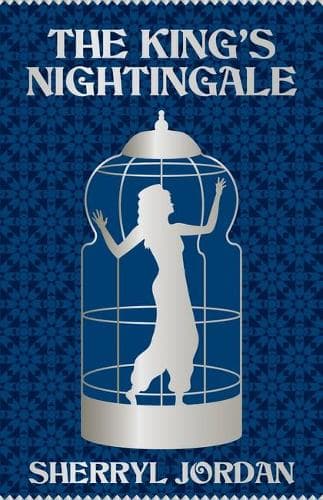Review: The King’s Nightingale
Reviewed by Link Pickering
Multi-award-winning, Tauranga-based author Sherryl Jordan has created a compelling tale based in a fictional rendition of the one million European Christians enslaved by Muslims in North Africa between 1530 and 1780. Throughout, readers are confronted with oppression, racism, loyalty and gender equality, with a dash of love and sacrifice to form a captivating narrative.
Jordan was inspired after learning about the suffering of white enslaved Christians from the coasts of European countries and sold to Muslim masters through slave markets along the north coasts of Africa. She was affected by the emotional trauma of those who could never return to their native homes and was inspired by their courage. Through this, Jordan formed an imaginary fable, deeply rooted in a very real history.
Similar to Jordan’s previous novels, like Winter of Fire, she creates a self-empowered female protagonist, Elowen, who is captured from her small coastal village when it’s raided by foreign pirates. She’s scouted from a far away slave market and dubbed the “Nightingale” of the king who rules the desert, due to her resplendent voice. Touching on the varying value of human life and the interesting hierarchal system of this strange city, the story contrasts standard perceptions of slaves and inspires thought about the value of human life.
But behind Elowen’s sublime melodies is a stubborn determination to escape, find her brother and return home. Due to her obnoxious ignorance, Elowen often forgets the sacred rules of her new home and frequently commits crimes punishable by death. Headstrong characters, such as Elowen, can be a bit jarring in novels but Jordan incorporates vulnerable and delicate aspects into Elowen’s personality, portraying an exceptionally human character who’s complex and flawed.
Elowen is honoured by the king, living a life of luxury and is loved by the king’s scribe, but she makes an inexcusable mistake which causes her to be dismissed and resold to another, much less charitable master. Jordan emphasises Elowen’s internal debate, about the shifting location of her home and the difference between a slave and an enslaved person which can be a confronting and heavy topic for a novel. However, Jordan’s inclusion of love and family values alleviate the tone.
Jordan’s vividly descriptive writing style meshes well and adds depth to the text. Her writing evokes sights, smells and sounds of the intricate exotic bazaars and palaces in the version of the Ottoman Empire she portrays. The inclusion of an invented language, Rabakeshi, expands the imagined legitimacy of the novel.
Jordan’s reflection of real-world events and places in a new fictionalised world adds a strange familiarity and recognition to the text. This gripping novel, though rooted strongly in history, would interest many fantasy genre admirers, yet it touches on many modern societal issues such as gender equality, oppression, racism and religious discrimination.
Reviewed by Link Pickering
